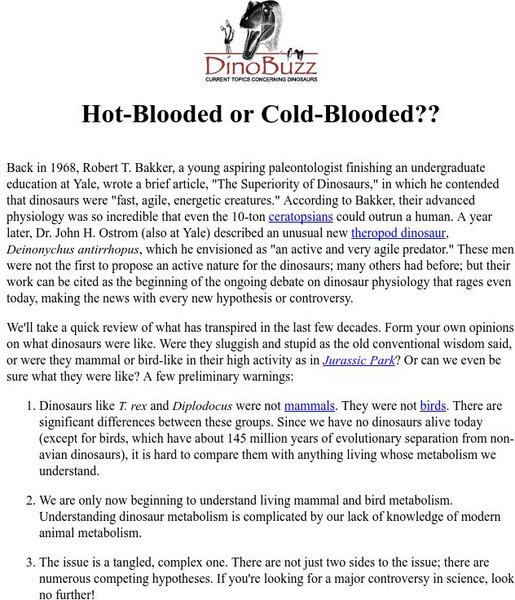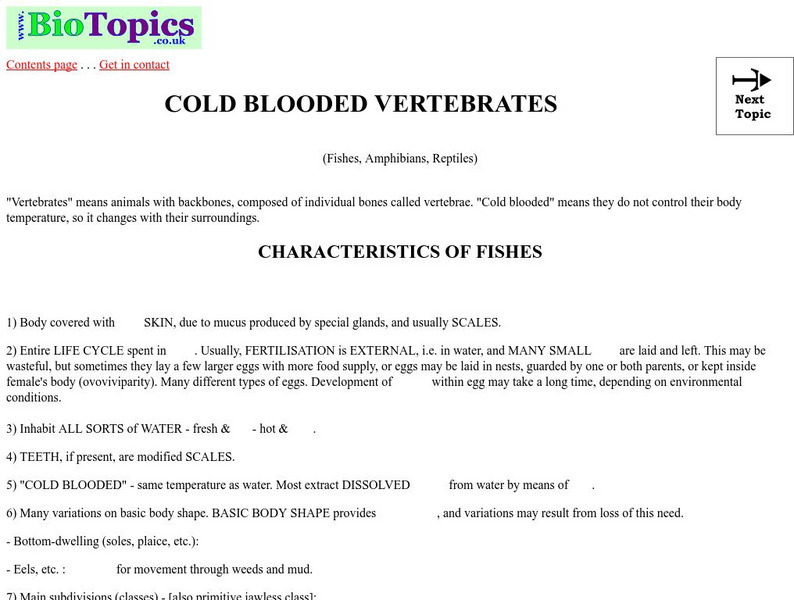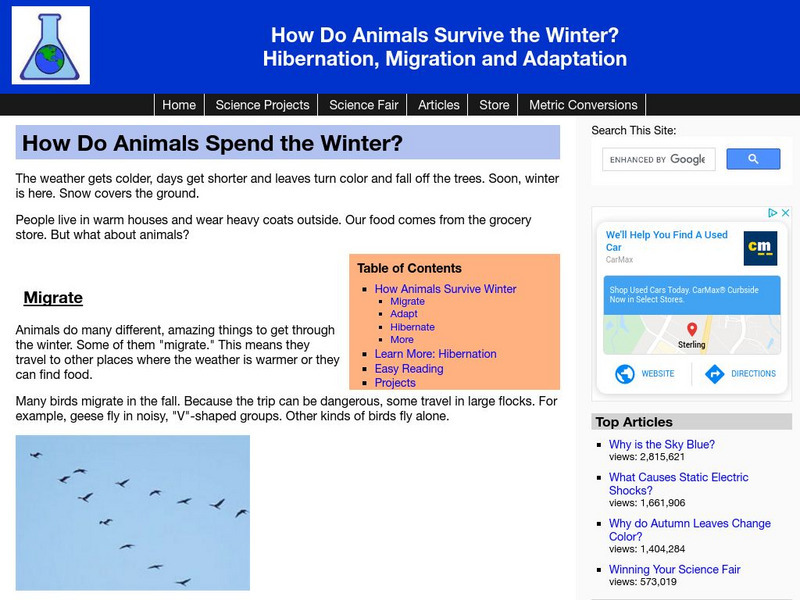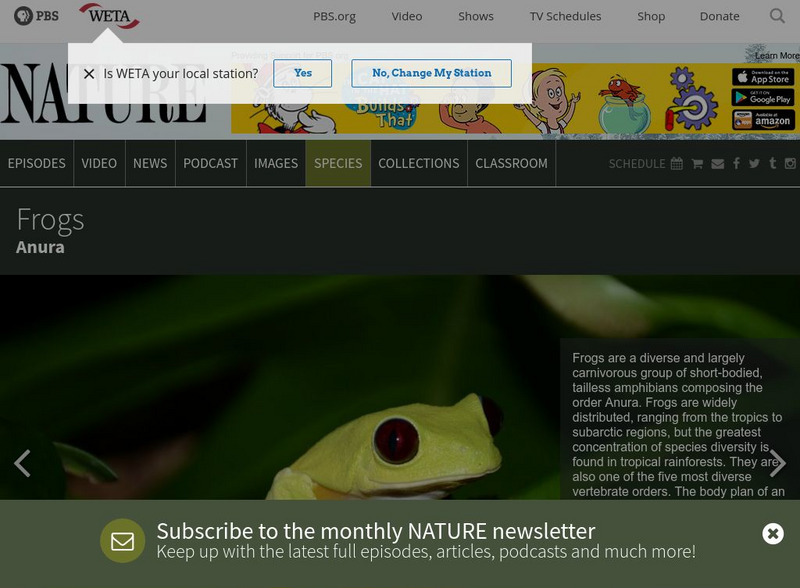Scholastic
Scholastic News: Were Dinosaurs Warm or Cold Blooded?
Scientists have never known if dinosaurs should be called warm-blooded or cold-blooded animals. Learn about the surprising new discovery that has shed light on the answer to this question.
University of California
Ucmp: Hot Blooded or Cold Blooded?
An easy-to-understand explanation of what it means to either hot- or cold-blooded.
California Institute of Technology
Infrared Zoo Lesson 3: The Invisible Zoo
How do biologists and zoologists use infrared technology to learn how warm and cold-blooded animals thermoregulate their internal body temperature? Have your students explore this phenomenon using this great lesson plan.
Bio Topics
Bio Topics: Cold Blooded Vertebrates
A worksheet regarding cold blooded vertebrates, including fishes, reptiles and amphibians.
Ducksters
Ducksters: Reptiles for Kids: Learn All About These Scaly Animals
What is a reptile and how to they live? Kids learn about these cold blooded animals including snakes, lizards, and alligators.
National Geographic Kids
National Geographic Kids: Animals: Nile Crocodile
A great multi-media National Geographic site including video and audio clips all about crocodiles. There are fun facts and you can send a post card to a friend.
University of Michigan
University of Michigan Critter Catalog: Amphibians
This site provides a general description of amphibians and then describes in detail the characteristics of local animals in southern Michigan. Pictures, classification information, and sound clips of some amphibians are provided.
Science Made Simple
Science Made Simple: How Do Animals Spend the Winter?
Use this site to learn how animals use hibernation, adaptation, and migration to overcome the difficulties of winter.
Environmental Education for Kids
Eek!: Reptiles
Discover all you can about the various species of cold-blooded vertebrates, otherwise known as reptiles.
Ducksters
Ducksters: Amphibians for Kids: Frogs, Salamanders, and Toads
What is an amphibian? Kids learn about these cold blooded animals including salamanders, frogs, and toads. Lifecycle such as tadpole and metamorphosis.
Bill Nye
Bill Nye: Temperature Time Warp
In this activity, learners explore the behavior of cold-blooded animals by observing what happens when they change a fly's temperature.
ClassFlow
Class Flow: Vertebrate Flipchart
[Free Registration/Login Required] This flipchart introduces students to vertebrates and provides pictures and information on the different types of vertebrates including their characteristics, their physical and environmental needs, and...
Environmental Education for Kids
Eek!: Amphibians
Amphibians are cold-blooded, smooth-skinned vertebrates. Most live some of their life in water and some on land. The most common amphibian critter is a frog but there are many others. Read about Wisconsin's many amphibians here.
Other
Georgia Perimeter College: The Permian Period
This resource provides basic information of the changes that took place during the Permian period as well as the animals that populated the Earth during this time.
PBS
Pbs Nature: Frogs and Toads
Do you know how to tell the difference between a frog and a toad? This site provides interesting facts and information about this type of amphibian from where they live to what they eat and more.
Exploratorium
Exploratorium: The Amazing Adaptable Frog
Journey back over a million years ago and see how the common frog has adapted and changed.
Ducksters
Ducksters: Horse
Kids learn about the horse including terminology, colors, food, wild horses and more.
San Diego Zoo Global
San Diego Zoo: Kids: Reptiles
Learn important features of reptiles with this reference page. Includes pictures of common reptiles.
Ducksters
Ducksters: Fish for Kids: Learn All About Aquatic and Ocean Marine Life
Kids learn what makes up a fish. What are gills and how do they breathe in the water?
Ducksters
Ducksters: Eastern Diamondback Rattlesnake
Kids: Learn about this dangerous venomous snake. Identify the eastern diamondback rattlesnake and find out about this large rattling reptile.














